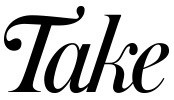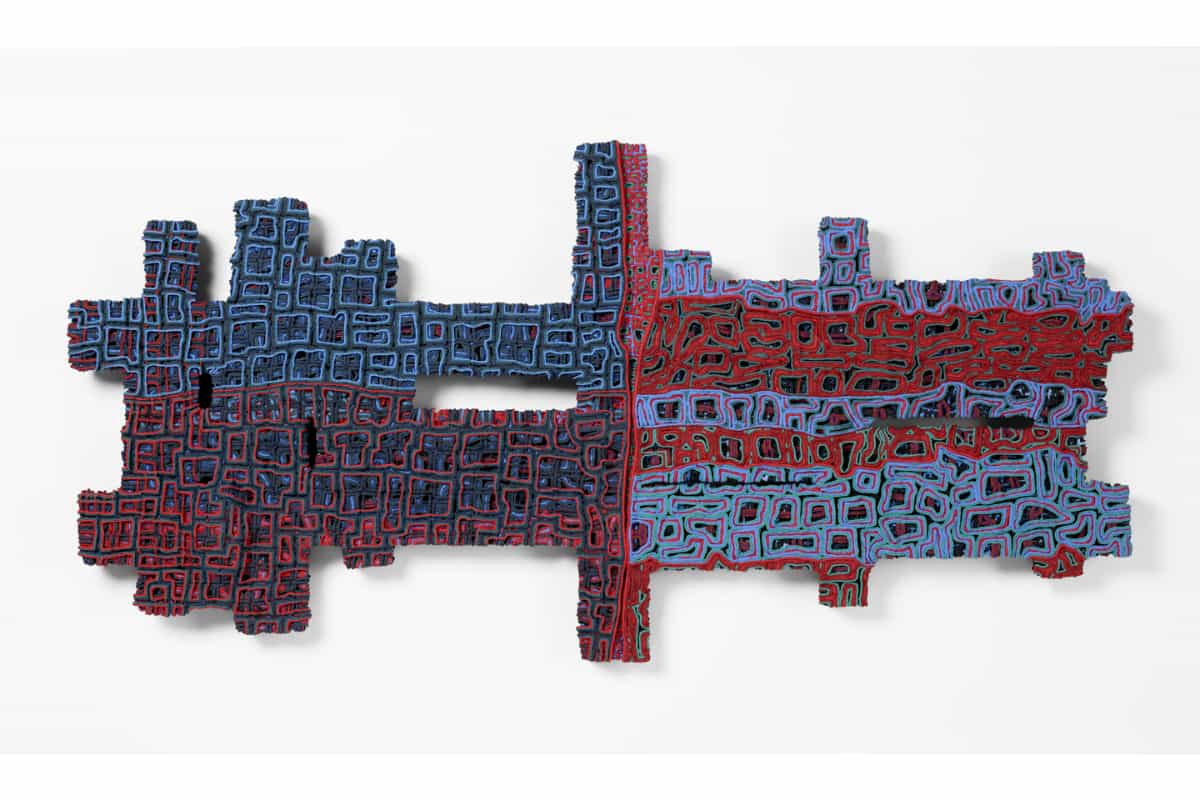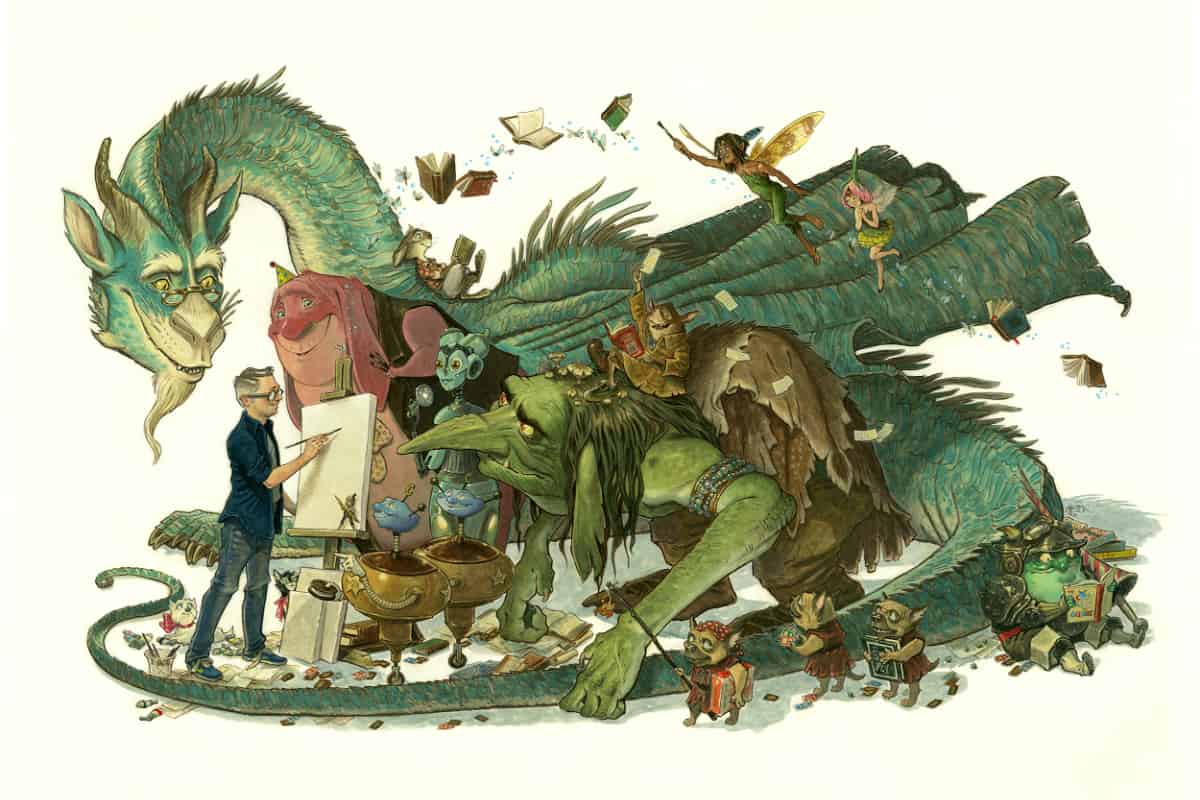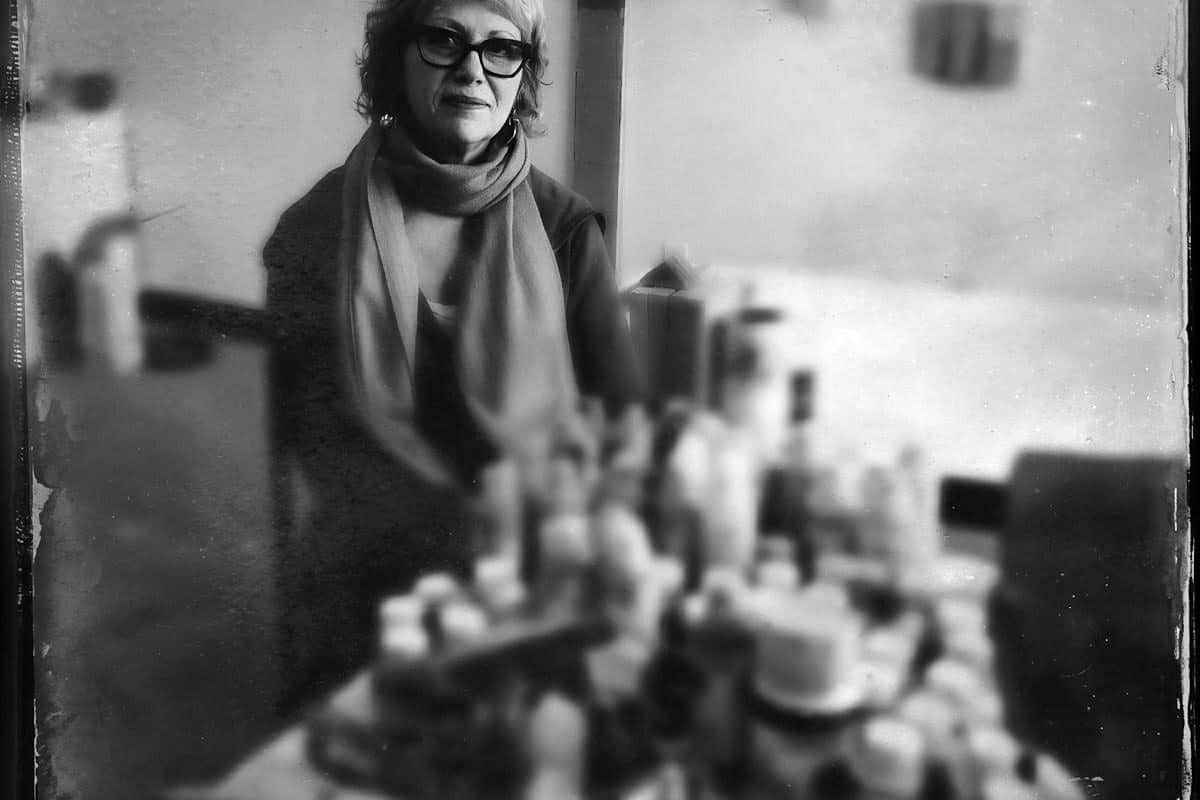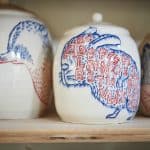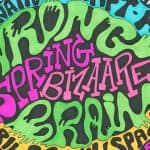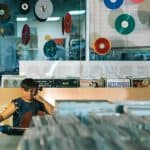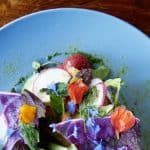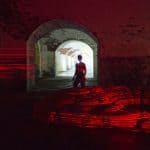Boston multimedia artist Erica Licea-Kane uses a pastry bag to create “object paintings” with multiple layers of meaning.
Boston-based multimedia artist Erica Licea-Kane creates mysterious maps of herself, cryptic in their information and elusive in their materials. Her recent show at The Kingston Gallery, Over & Over, highlighted these explorations, featuring her complicated three-dimensional weaves and a series of drawings on paper that both feature layers upon layers that reveal hints of what lies beneath but never spills the whole truth.
Licea-Kane creates her “object-paintings” with acrylic paint applied not with a brush, but a pastry bag. This latest series builds from a grid that starts with a base of pieced-together balsa and basswood, giving them irregular shapes. It’s a culmination of the last 17 years of her work, with various ideas and methods coming together.
“You cannot weave without a grid,” says Licea-Kane. “It’s inherent in many textiles, even the printed textiles because they’re often printed on a gird repeater. It’s very very inherent in my work and in my background.”
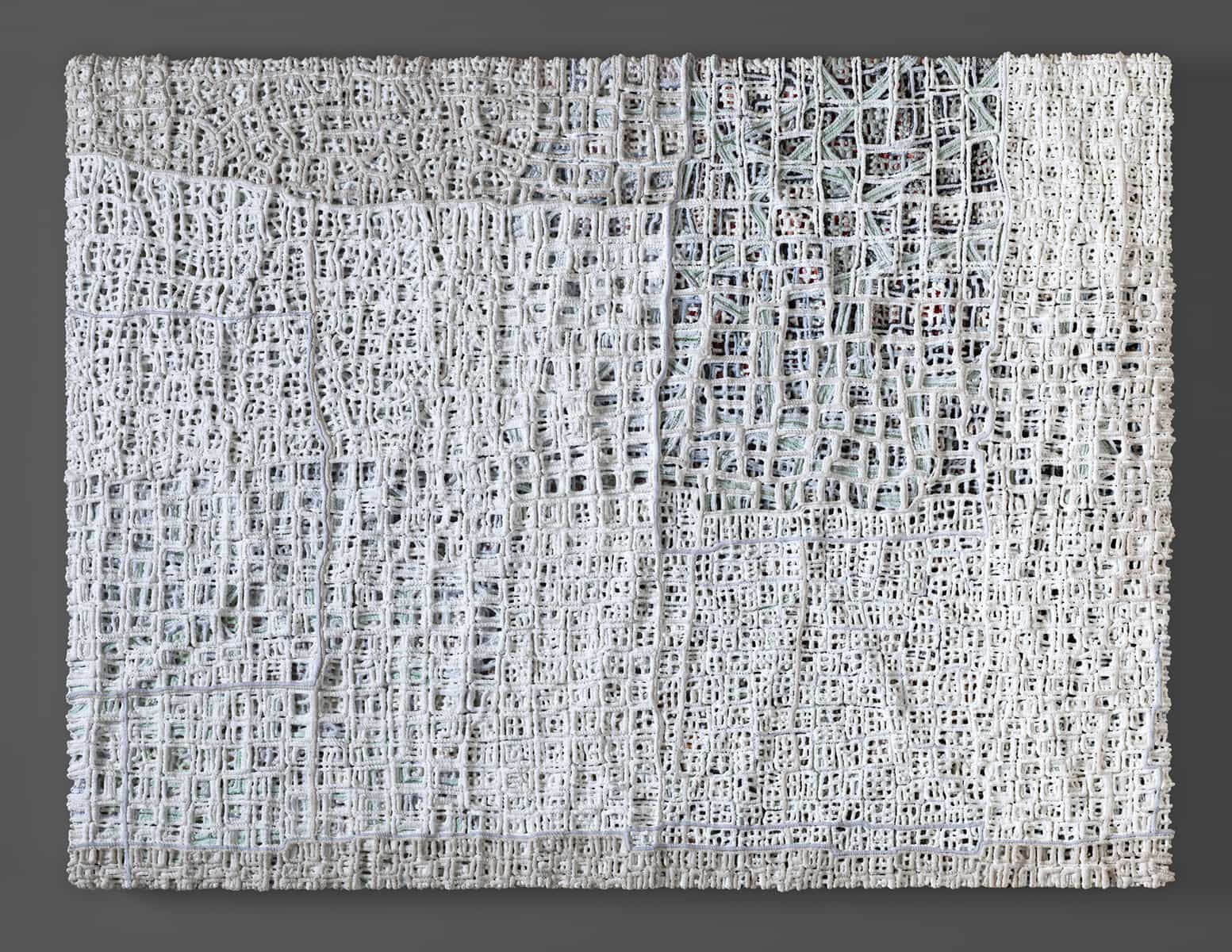
Quietly Observing. Photo courtesy of Erica Licea-Kane
In the 1990s, Licea-Kane would weave her own fabric together, stiffen it, paper over it, and then paint on top of it, as well as create her own knotted nets. In 2000, she moved to canvasses to create physical patterns on top of. That evolved into her current method of squeezing the acrylic through a pastry bag onto the surface, creating multiple layers of what Licea-Kane refers to as “squeezed medium.”
“This is hours and hours and hours of me bending over, squeezing a pastry bag layer after layer after layer until I get the quality of the surface that I want and until I get the undersurface peeking through the top layers,” she says. “They’re very premeditated.”
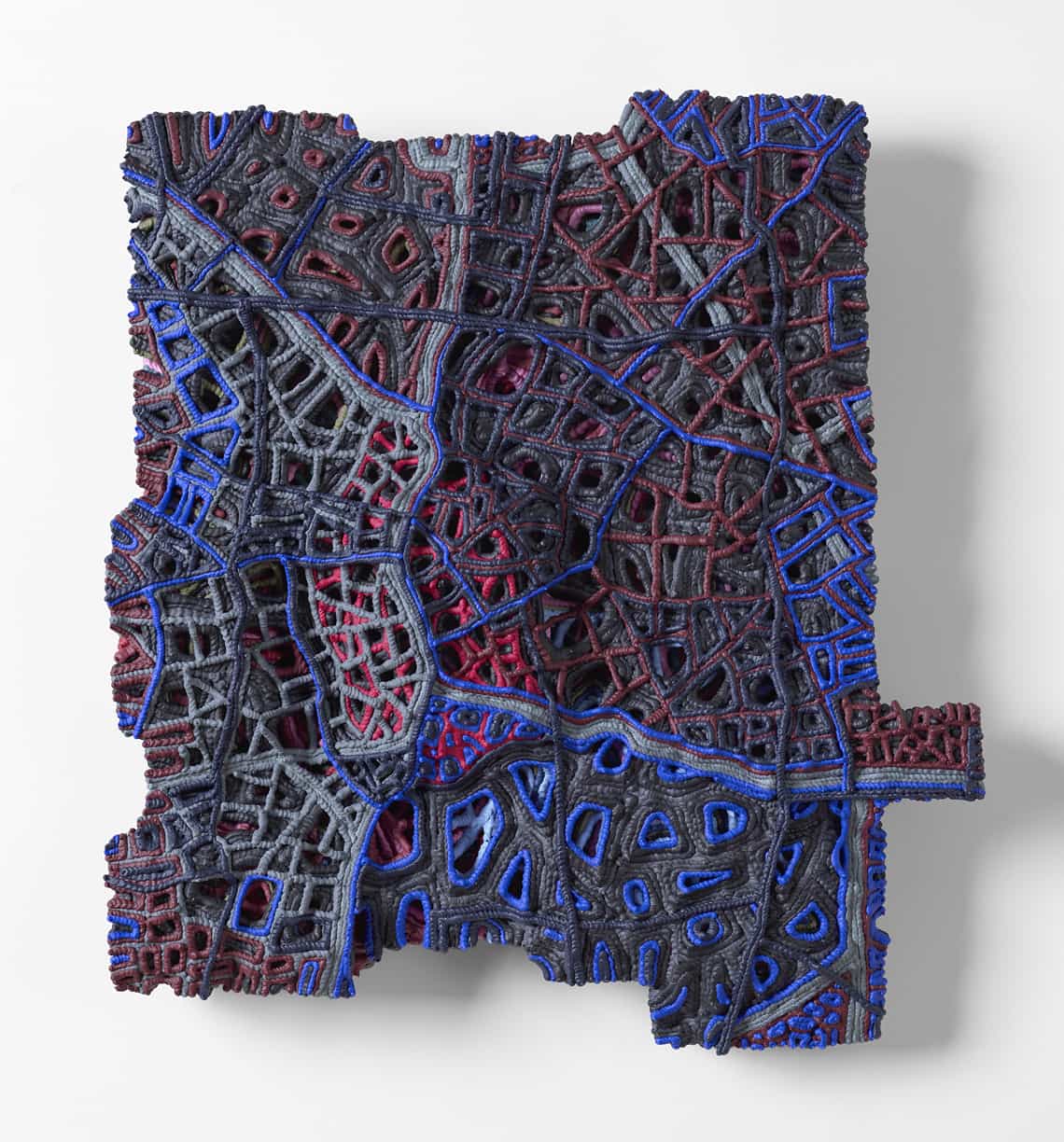
The Embrace. Photo courtesy of Erica Licea-Kane
For her recent show, Licea-Kane also drew a series of related circular pieces that had her drawing grids for about five months and then burning the surface with a stencil in order to break it up and add dimensions. “I’m a very additive artist, and so there’s lots and lots of little parts that make up the whole surface,” she says. “I’m doing that in the other pieces as well. I was thinking about these as little parts disrupting the grid underneath, so there is this order theme in my work. Order and balance.”
Her work has a topographical quality, resembling urban landscapes and at times reflecting Licea-Kane’s long term fascination with aerial land imagery. Her consistent use of a grid hearkens back to her weaving days and is crucial in her work’s map-like appearance. And these aren’t maps to imaginary places—just emotional ones. The work explores aspects of herself in an almost coded, abstract way. You have to look at them to see what lies beneath. The work appears to be one thing at a distance but a closer proximity lends itself to revelations of depth. Things are revealed as hidden.
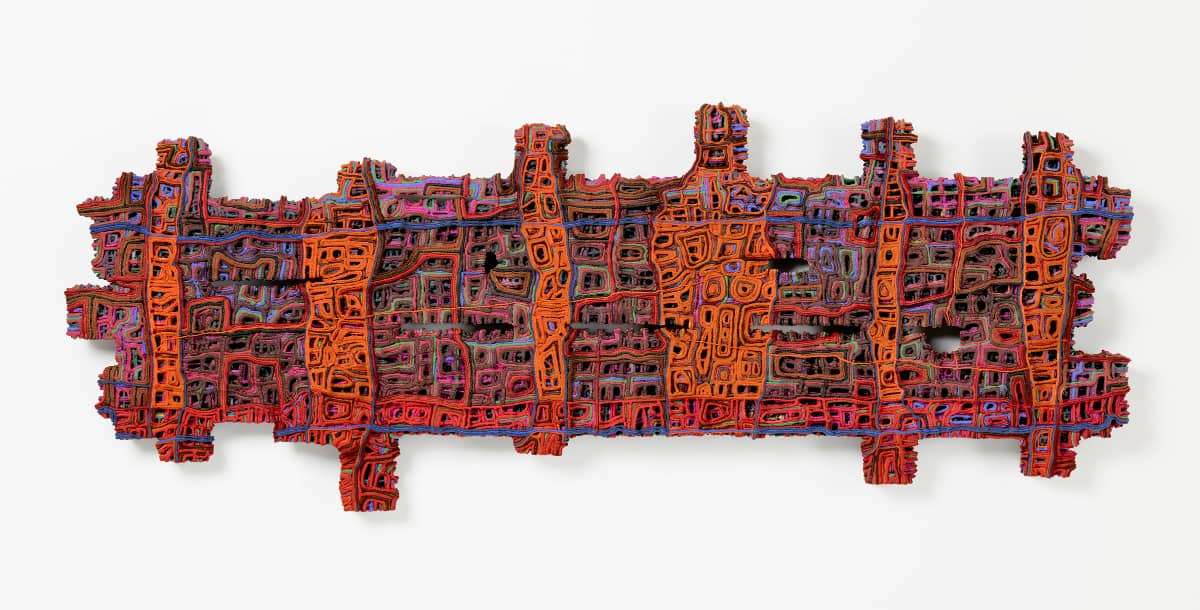
Orange Distortions. Photo courtesy of Erica Licea-Kane
“There are a lot of questions about time in my work,” says Licea-Kane. “How much time does this take? It takes a long time. So I guess the pieces are about time and order and spatial divides and all the formal devices. I use all of them. Balance.”
